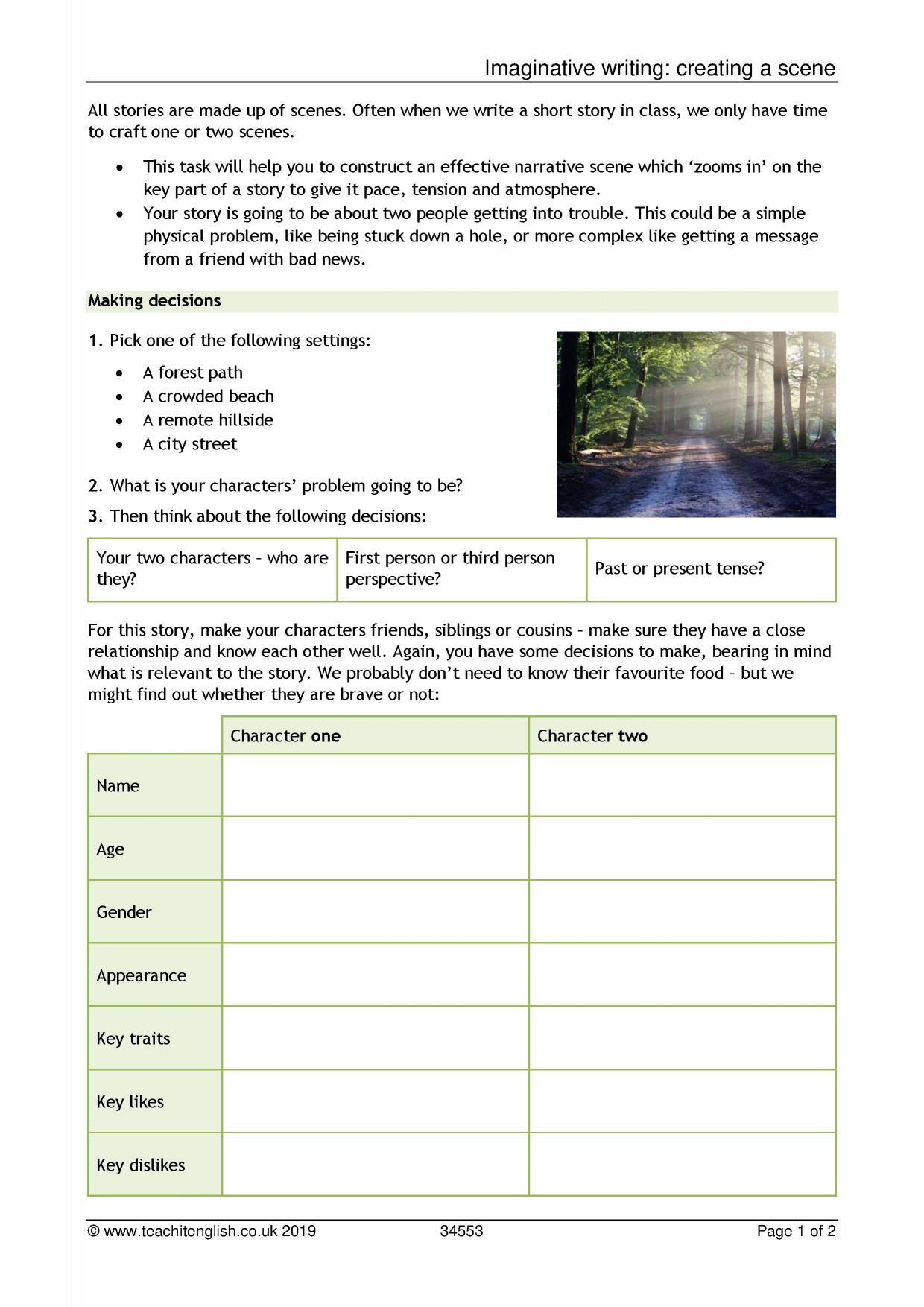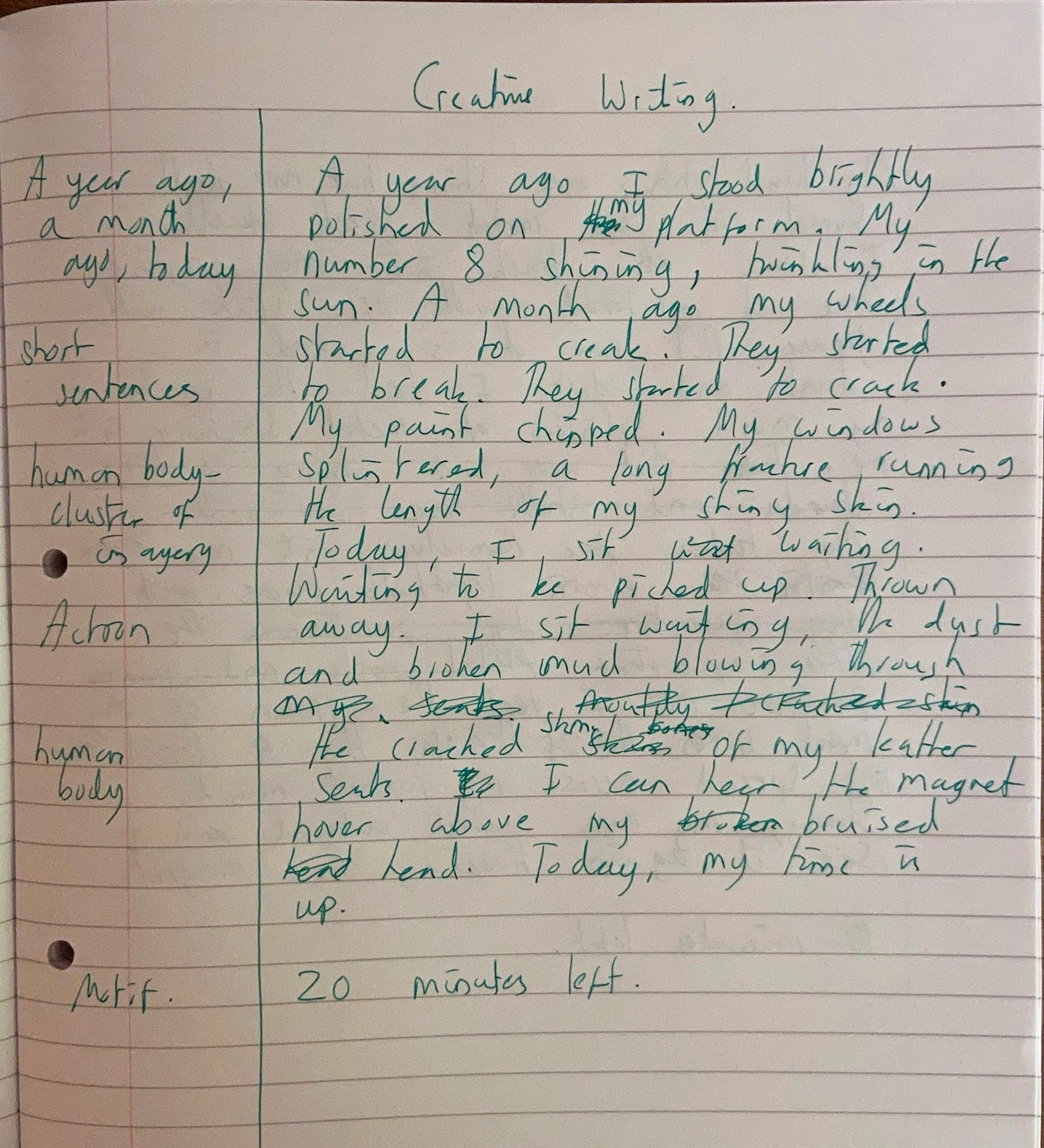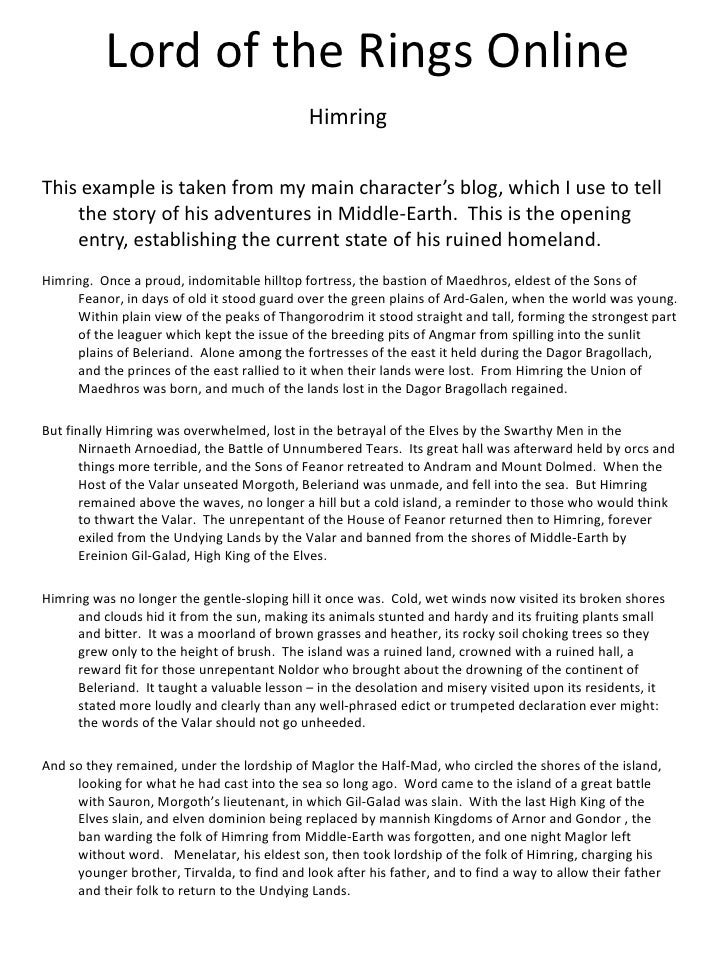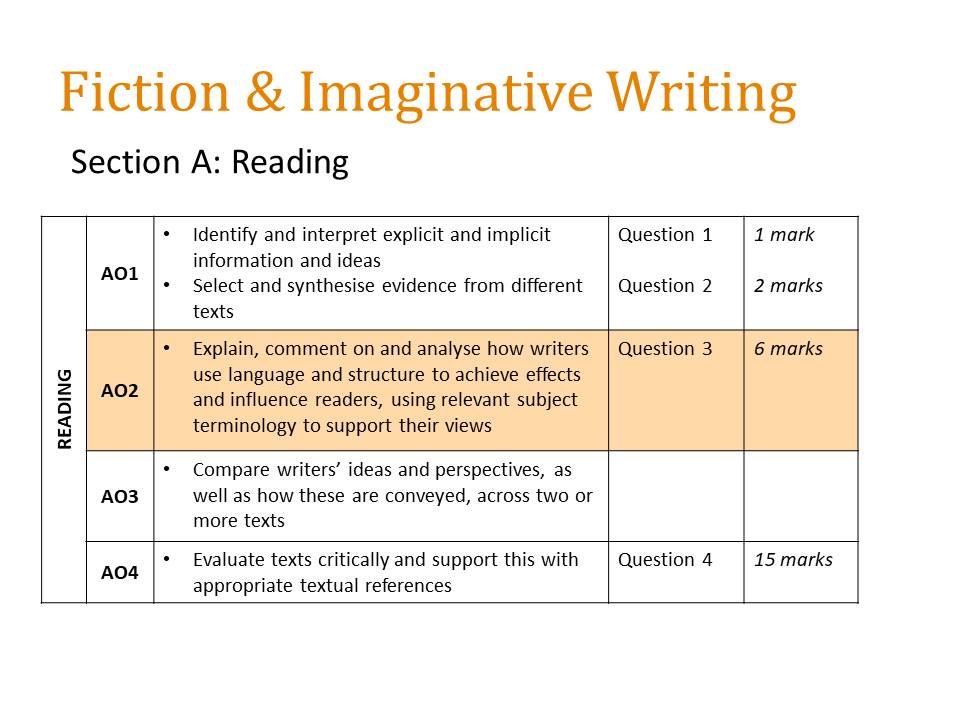
Imaginative writing GCSE English Marked by
Paper 1 asks students to analyse an extract from a 19th century fiction text and then produce a piece of imaginative writing. This paper is worth 40% of the GCSE overall and has time-limit of one hour and 45 minutes. Paper 2 is worth 60% and has a time-limit of two hours and five minutes.

Creating a story setting KS3 Creative writing Teachit maginative writing
Paper 1: Fiction and Imaginative Writing GCSE Language 2015 Student exemplar responses for Paper 1: Fiction and Imaginative Writing Contents Introduction 2 Paper 1: Section A - Reading 3 Question 13 Question 24 Question 36 Question 410 Paper 1: Section B - Imaginative Writing 17 Question 517 Question 624 ©Pearson Education Limited 2015

Modelling Creative Writing A Model Example and How We Got There codexterous
GCSE Imaginative Writing Bundle A bundle of lessons specifically targetted at boosting progress in the Imaginative Writing sections of the English Language exams. There are holistic lessons (exam skills and requrirements), model answers and specific intervention lessons on common areas of weakness. was £15.00 Last updated

English imaginative and narrative writing gcse example
Edexcel English Language GCSE Paper 1: Imaginative Writing Tasks This resource is a series of titles linked to pictures in the style of Edexcel's English Language GCSE Paper 1 Imaginative Writing questions. The images are my own and you are very welcome to use them as practice questions. More Edexcel English Language GCSE Resources

GCSE/iGCSE Imaginative Writing model answer Writing competition, Imaginative writing, Creative
GCSE Fiction and Imaginative Writing: Writing Revision We're revolutionising GCSE revision for your child. With an EdPlace account, you'll have access to Maths foundation and higher content, English Literature, English Language and Single and Combined Science - all in one place.

Creative Writing Gcse ‒ Writing fiction Edexcel
GCSE English Language 2015 Component 1: Fiction and Imaginative Writing Scheme of Work Introduction This Scheme of Work covers the reading and writing requirements for Paper 1, where the assessment objectives of AO1 through to AO6 are assessed.

Fiction and Imaginative Writing Edexcel GCSE English Language (91), Paper 1, Section A
Imaginative or creative writing absorbs readers in an entertaining way. To succeed with this kind of writing you will need to write in a way that is individual, original and compelling to.

Imaginative Writing GCSE English Marked by
The imaginative writing task: All stories are made up of scenes. Often when we write a short story in class, we only have time to craft one or two scenes. This task will help you to construct an effective narrative scene which 'zooms in' on the key part of a story to give it pace, tension and atmosphere.

Fiction and Imaginative Writing Edexcel GCSE English Language (91), Paper 1, Section A
pdf, 1.23 MB. pptx, 405.21 KB. A 4 lesson crash course in strategies for imaginative and creative writing for GCSE English Language. (Suitable to AQA and Edexcel exam boards, and easily adaptable to others.) I originally taught this with a higher ability year 11 class (target grade 6/7/8) as a 1 week crash course to raise the standard of their.

Creative writing essays gcse
An idea as old as writing itself: Love and romance is something we can all relate to and you'll probably have some personal feelings that you can incorporate into your work. Possible plot lines could be a tale of unrequited or forbidden love. About the author: Thomas Brella. Thomas Brella is the founder of Student Hacks, starting the website in.

Edexcel English Imaginative Writing Teaching Resources
Published: 27/01/2022. One of the great pleasures - and challenges - of teaching English is helping students to develop their own 'voice' and style as writers of short stories. Assessing their creative, imaginative, descriptive and narrative writing skills at GCSE is a different matter, and can prove to be less rewarding for students, as.

GCSE Imaginative Writing Model Answer Bundle Teaching Resources
The Imaginative Writing Using Images scheme has been produced to help prepare students to write imaginatively at GCSE. The lesson plans and supporting resources may be used and adapted to teach imaginative writing skills based on an image for the new AQA and Edexcel examinations; however, these could also be adapted to teach imaginative writing for the other examinations.

Imaginative Writing GCSE English Marked by
Your creative writing component will be judged on spelling, grammar and punctuation, so make sure that you read your work once you're done to iron out any potential mistakes. If you want a little bit more help, Tutor House offers world-class English GCSE tutors. To find out more, or to book your tutor today, call 0203 9500 320.

Understanding Imaginative Writing
To enhance your children's GCSE creative writing skills, allocate time for practice. Plan a structure for creative writing to guide children in organising their thoughts and managing time during the GCSE exam. Apply this structure to various exam questions, such as short stories or describing events.

Fiction and Imaginative Writing Edexcel GCSE English Language (91), Paper 1, Section A
Imaginative Writing is often seen as an easier section in the IGCSE English Language exams, but it is often neglected in the classroom. Effective imaginative writing, just like essay writing and analysis, requires a clear plan and structure and powerful use of creative writing techniques. While most IGCSE English students understand basic.

Creative writing GCSE English Marked by
A short 5 lesson unit on Imaginative/Creative writing, created for the new GCSE English Language 9-1 spec. Contains lessons on describing setting and character, effective story openings, narrative structure (using The Simpsons) and the importance of planning. Clear assessment and success criteria checklists, which could be used for self/peer.